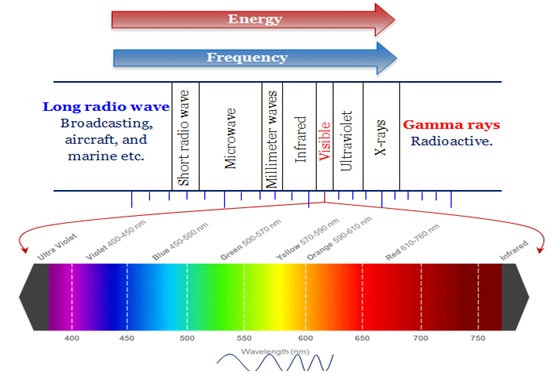UV-C technology, and how does it work on coronavirus
- Posted By
10Pointer
- Categories
Science & Technology
- Published
16th Jul, 2021
-
Context
Ultraviolet-C or UV-C Disinfection Technology will soon be installed in Parliament for the “mitigation of airborne transmission of SARS-COV-2’’.
What is UV-C system?
- The UV-C air duct disinfection system was developed by CSIR-CSIO (Central Scientific Instruments Organisation).
- The system is designed to fit into any existing air-ducts and the virucidal dosages using UV-C intensity and residence time can be optimised according to the existing space.
- The virus is deactivated in any aerosol particles by the calibrated levels of UV-C light.
- It can be used in auditoriums, malls, educational Institutions, AC buses, and railways.
Ultraviolet (UV) radiation

- Ultraviolet (UV) is a type of light or radiation naturally emitted by the Sun.
- It covers a wavelength range of 100-400 nm. The human visible light ranges from 380–700 nm.
- UV is divided into three bands: UV-C (100-280 nm), UV-B (280-315 nm) and UV-A (315-400 nm).
- UV-A and UV-B rays from the Sun are transmitted through our atmosphere and all UV-C is filtered by the ozone layer.
- UV-B rays can only reach the outer layer of our skin or epidermis and can cause sunburns and are also associated with skin cancer.
- UV-A rays can penetrate the middle layer of your skin or the dermis and can cause ageing of skin cells and indirect damage to cells’ DNA.
- UV-C radiation from man-made sources has been known to cause skin burns and eye injuries.
|
UV-C kill coronavirus
- UV-C radiation can destroy the outer protein coating of the SARS-Coronavirus.
- The 222-nm, known as ‘far-UVC light’, efficiently kills airborne human coronaviruses – alpha HCoV-229E and beta HCoV-OC43.
Impact on human
- UV-C radiation used in this device could be harmful to the skin and eyes of living beings, therefore the operator of the device must use spectacles with UV-C radiation protection and use this device safely.